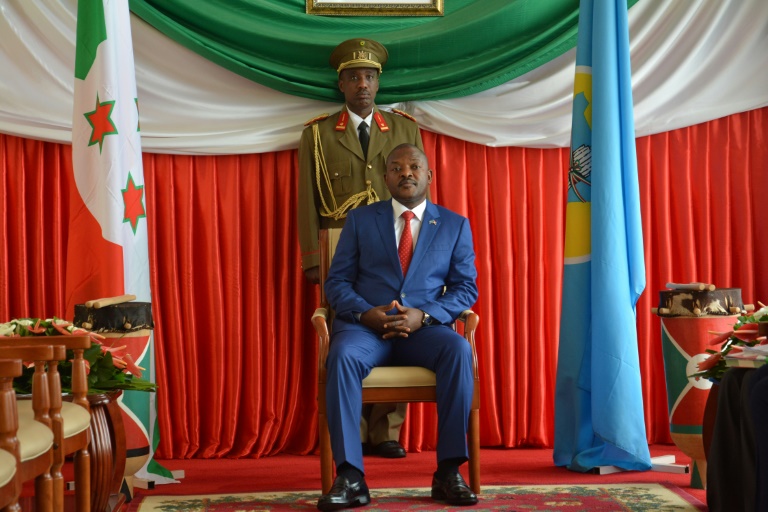Opposition groups say the police and the ruling party’s ferocious Imbonerakure youth wing, branded a militia by the UN, are forcing people to enrol ahead of the referendum in May.
“What is happening is unacceptable. Getting registered (to vote) is a civil right, and a right that one can choose to exercise or not,” said Tatien Sibomana, one of a handful of opposition leaders who have chosen not to go into exile.
A coalition of opposition parties in exile, CNARED, also denounced the “enrolment by force” with spokesman Pancrace Cimpaye accusing the authorities of trying “to counter the (population’s) low enthusiasm” for the referendum.
Former rebel leader Nkurunziza, 54, has ruled the small, densely populated central African nation for 12 years and critics have accused him of being a dictator who refuses to give up power.
Opposition parties are against the constitutional changes on grounds they could deal a death blow to the Arusha peace accords which are credited with ending the 1993-2006 civil war when more than 300,000 people died.
The Arusha accords clearly stipulate that no president can govern the country for more than 10 years.
– Threats, intimidation –
Witnesses from several cities told AFP the authorities were using a number of different tactics.

President Pierre Nkurunziza has ruled Burundi for 12 years
“All passersby were obliged to stop at roadblocks where they had the Imbonerakure and the police,” said one high school teacher in the northwestern city of Bubanza, who wished to remain anonymous.
“People could not pass without showing their enrolment papers.”
An 18-year-old student from southeastern Makamba province said pupils who had not registered on the electoral lists were being ordered to do so and show proof.
And residents of two communes in central Gitega province said the local authorities had threatened not to validate their health insurance or provide fertiliser unless they registered.
In response, first vice president Gaston Sindimwo acknowledged that some Imbonerakure may have gone over the top.
“There may be some of them who abuse the association’s power and make mistakes but within the government, we are putting forward the reasons for enrolment,” he said.
In power since 2005, Nkurunziza ran for a controversial third term in 2015 which he went on to win, plunging Burundi into crisis.
The current constitution sets a limit of two five-year presidential terms.
His decision to run again sparked violence that has left at least 1,200 dead and sent more than 400,000 Burundians fleeing across borders, mostly to Tanzania.
– ‘Flagrant double standards’ –
In October, the government adopted a plan to revise the constitution which, if approved in the referendum, would enable Nkurunziza to serve another two seven-year terms from 2020.
Two months ago, the government launched a campaign to promote the referendum.
But it also banned any public partisan campaigning, either for or against the changes, until two weeks before the vote.
Opposition parties have accused the government of “flagrant double standards” after ministers called for the changes to be voted through.
At least 50 opposition activists, mostly former National Liberation Forces rebels, have been arrested for calling for a “no” vote. And earlier this week, four students and a teacher were detained for the same reasons, with one of the students arrested in class.
In December, Nkurunziza threatened to arrest anyone trying to “sabotage” the referendum, saying they would be crossing “a red line.”
Download our app